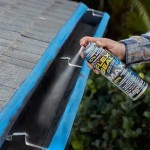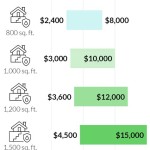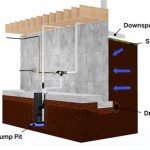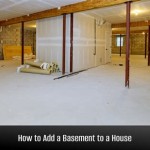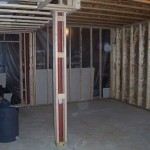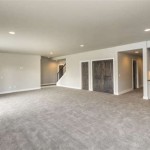Best Flooring Material For Basements: A Comprehensive Guide
Selecting the appropriate flooring material for a basement environment requires careful consideration of several factors, including moisture resistance, durability, cost, and aesthetic appeal. Basements, often located below ground level, are particularly susceptible to moisture issues, which can significantly impact the longevity and performance of flooring materials. This article will explore a range of suitable flooring options, highlighting their strengths and weaknesses to assist in making an informed decision.
The basement environment presents unique challenges not typically encountered in above-ground living spaces. These challenges primarily revolve around moisture management. Concrete slabs, which often form the subfloor of basements, can wick moisture from the surrounding soil, leading to dampness and potential mold growth. Fluctuations in humidity levels can also contribute to condensation and moisture accumulation. Therefore, selecting a flooring material that can withstand these conditions is paramount.
Beyond moisture resistance, durability is another crucial consideration. Basements are often used as utility spaces, recreation rooms, or home offices, subjecting the flooring to varying levels of foot traffic and potential impact. Consequently, the chosen material should be able to withstand wear and tear, resist staining, and maintain its structural integrity over time. Furthermore, the cost of installation and long-term maintenance should be factored into the decision-making process.
Understanding Moisture Management in Basements
Before selecting a flooring material, it is essential to address any existing moisture issues in the basement. This may involve installing a vapor barrier beneath the flooring, improving ventilation, or addressing any leaks in the foundation. A vapor barrier is a membrane designed to prevent moisture from migrating upwards through the concrete slab. It is typically installed beneath the flooring material to protect it from moisture damage. Proper ventilation helps to reduce humidity levels and prevent condensation. Addressing any leaks in the foundation walls or floor is crucial to prevent long-term moisture problems. Ignoring these underlying issues can lead to premature flooring failure, mold growth, and potential health concerns.
Testing the basement floor for moisture is a critical step. This can be done using a simple plastic sheet test. Tape a square of plastic sheeting to the concrete floor and leave it for 24-48 hours. If condensation forms beneath the plastic, it indicates that moisture is rising from the slab. In such cases, a more robust moisture barrier or a flooring material specifically designed for damp environments is necessary. Professional moisture testing services can provide more accurate assessments and recommendations.
Consider the source of moisture. Is it primarily groundwater seepage, condensation, or humidity? Addressing the root cause of the moisture problem is vital for long-term success. If the problem is groundwater, exterior waterproofing measures may be needed. If the problem is condensation, improving ventilation or installing a dehumidifier may be sufficient. A comprehensive approach to moisture management is essential to ensure the longevity of the flooring.
Popular Flooring Options for Basements
Several flooring materials are commonly used in basements, each with its own set of advantages and disadvantages. These include epoxy coatings, luxury vinyl flooring (LVF), engineered wood, tile, and carpet tiles. The selection process often involves evaluating the specific requirements of the basement space, considering factors such as budget, intended use, and aesthetic preferences.
Epoxy coatings are a popular choice for basements due to their excellent moisture resistance and durability. Epoxy is a thermosetting polymer that creates a seamless, waterproof surface when applied to concrete. It is resistant to stains, chemicals, and abrasion, making it a suitable option for utility areas and workshops. Epoxy coatings are available in a variety of colors and finishes, allowing for customization. However, epoxy can be challenging to install and requires proper surface preparation. It can also be more expensive than some other flooring options.
Luxury vinyl flooring (LVF) is another excellent option for basements. LVF is a synthetic material designed to mimic the look and feel of natural materials such as wood, stone, or tile. It is highly water-resistant, durable, and easy to maintain. LVF is available in a variety of styles and formats, including planks, tiles, and sheets. It is relatively easy to install, making it a popular choice for DIY projects. LVF also offers good sound insulation, which can be beneficial in basements. While water-resistant, it's vital to check the manufacturer’s specifications to ensure it can withstand the specific moisture levels of the basement. If the subfloor is prone to significant dampness, a subfloor with a built-in moisture barrier is recommended.
Engineered wood flooring consists of a thin layer of hardwood veneer bonded to a plywood or fiberboard core. This construction makes it more dimensionally stable than solid hardwood, reducing the risk of warping or cupping in humid environments. While better suited for basements than solid hardwood, engineered wood still requires some level of moisture control. A vapor barrier is typically recommended, and it is essential to choose a product specifically designed for below-grade installations. Engineered wood offers the warmth and beauty of hardwood but can be more susceptible to damage than other options if exposed to excessive moisture.
Tile, particularly ceramic or porcelain tile, is an excellent choice for basements due to its water resistance and durability. Tile is impervious to water and can withstand heavy foot traffic. It is also easy to clean and maintain. Tile is available in a wide range of styles, colors, and sizes, offering design versatility. However, tile can be cold underfoot, especially in basements. Installing radiant floor heating can help to alleviate this issue. Grout, which fills the spaces between tiles, should be properly sealed to prevent water penetration. While highly durable, tile can be susceptible to cracking if the subfloor is uneven or unstable.
Carpet tiles are a modular flooring option that can be a good choice for basements. Carpet tiles are individual squares or rectangles of carpet that can be easily installed and replaced. They offer good sound insulation and can provide a warm and comfortable surface. However, carpet is susceptible to moisture damage and mold growth. Therefore, it is essential to choose carpet tiles specifically designed for basements, with a waterproof backing and antimicrobial properties. Carpet tiles also allow for easy replacement of individual tiles if they become damaged or stained. Regular cleaning and maintenance are essential to prevent moisture buildup and maintain hygiene.
Key Considerations for Choosing the Right Flooring
The selection of the best flooring material for a basement is a multifaceted decision that involves weighing several factors. These factors include moisture resistance, durability, cost, installation complexity, and aesthetic appeal. Furthermore, the intended use of the basement space should be considered, as this will influence the type of flooring that is most suitable.
The level of moisture in the basement is a primary consideration. If the basement is prone to significant moisture issues, flooring materials with high water resistance, such as epoxy coatings or tile, are the best choices. If the basement is relatively dry, a wider range of options, including luxury vinyl flooring or engineered wood, may be considered. However, even in relatively dry basements, a vapor barrier is generally recommended to prevent moisture migration. Regular monitoring of humidity levels is essential to prevent moisture-related problems.
The durability of the flooring material is another important factor. If the basement is used as a high-traffic area, such as a recreation room or home gym, a durable flooring material, such as epoxy or tile, is recommended. If the basement is used as a more casual living space, such as a home office or media room, a less durable material, such as carpet tiles or engineered wood, may be acceptable. However, even in low-traffic areas, the flooring material should be able to withstand normal wear and tear. The choice of flooring materials based on the expected level of activity within the basement significantly reduces the risk of premature damage and replacement costs.
Cost is always a consideration when choosing flooring materials. The cost of flooring materials can vary widely, depending on the type of material, the quality, and the brand. It is essential to establish a budget before beginning the selection process. In addition to the cost of the flooring material itself, the cost of installation should also be considered. Some flooring materials, such as luxury vinyl flooring and carpet tiles, can be easily installed by homeowners, while others, such as epoxy coatings and tile, may require professional installation. A full breakdown of the costs associated with each option gives homeowners a clearer picture of potential budget implications.
The ease of installation is another factor to consider. If the homeowner is comfortable with DIY projects, a flooring material that is easy to install, such as luxury vinyl flooring or carpet tiles, may be a good choice. If the homeowner is not comfortable with DIY projects, or if the flooring material is difficult to install, professional installation is recommended. Proper installation is essential to ensure the longevity and performance of the flooring material. Attempting to install complex flooring systems without adequate knowledge and experience can lead to costly mistakes.
Aesthetic appeal is also an important consideration. The flooring material should complement the overall design of the basement space. Flooring materials are available in a wide range of styles, colors, and textures. Choosing a flooring material that reflects the homeowner's personal style and preferences enhances the overall aesthetic of the basement. The selection process should balance functionality with a sense of visual harmony and personal expression.

The Best Flooring Options For Your Basement

6 Of The Best Flooring Options For Basements Colorado

The Best Flooring For Basements Bigelow

5 Best Flooring Options For Basements Floors2day

How To Choose The Right Floor For Your Basement Gc Flooring Pros

The Best Flooring Options For Your Basement

Best Basement Flooring Options Costs And Ideas 2024 Hgtv

Don T Buy New Flooring Before You Check This Out

The 10 Best Basement Flooring Options Girl

What Is The Best Flooring For A Concrete Floor Basement Illinado Llc
